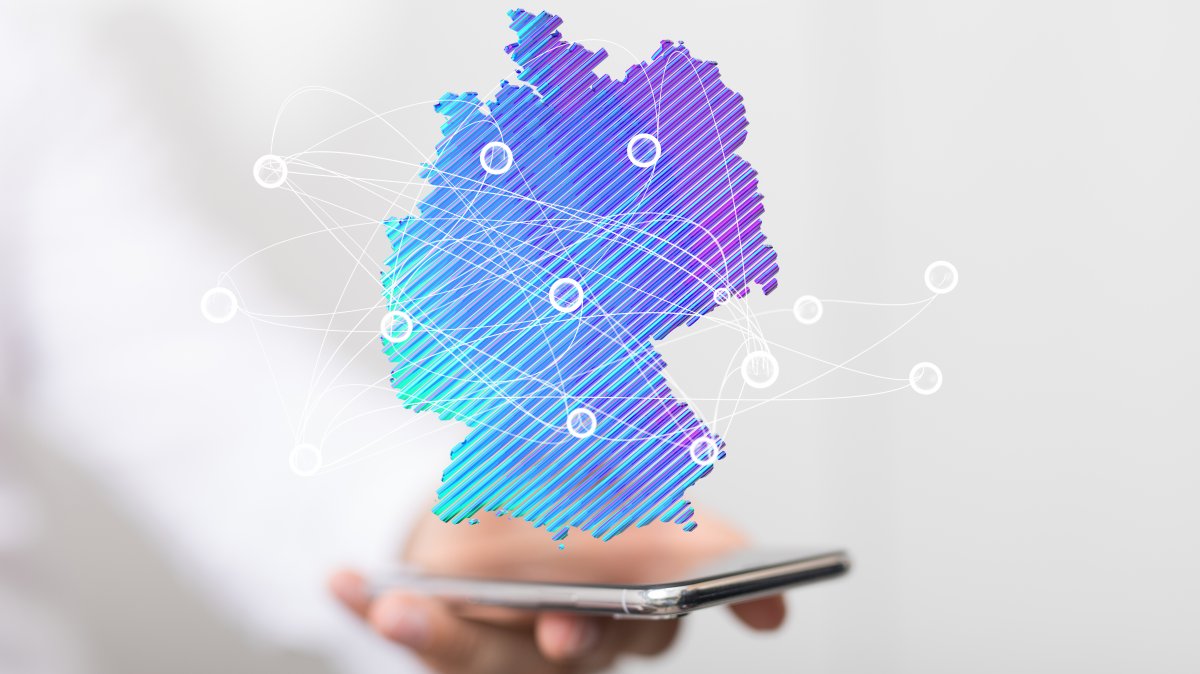Missing Link: Sovereign online – how states shape digital self-determination
Source: Heise.de added 04th Jan 2021Already in the first two weeks of the new year you can attend two conferences on the topic of “Digital Sovereignty”, one in Hong Kong and one in Brussels – both of course virtually. East and West do not understand the term to be the same, but also in Europe or in German politics the ideas of how one should be digitally sovereign vary. In the first Missing Link of the year we explore how politics argues and what technology can make possible.
What is missing: In the fast-paced world of technology there is often the time to rearrange the many news and backgrounds. At the weekend we want to take it, follow the side paths away from the current, try out other perspectives and make nuances audible.
Digital self-determination For almost two years the Swiss network “Digital Self-Determination” has been working on the idea of trustworthy data rooms. A specific project, the Data Hub of the Federal Office of Energy, was presented by Swiss representatives at the Internet Governance Forum in November. A central data platform should produce, distribute and consume energy more efficiently. Citizens could control their ecological footprint themselves, said Matthias Galus from the BfE. Another project is the Swiss Mobility Platform, an initiative of the Federal Office of Transport, which first brought all mobility providers around the table.
People consciously speak of digital self-determination instead of digital sovereignty, says Thomas Schneider from the Federal Office of Communication, which is jointly responsible for setting up the network. Of course, digital sovereignty also plays a role and the consideration of how the state can still maintain control in view of the power of the large platforms and technology providers, says Schneider. But it is easy to forget in these debates that the sovereign are the citizens.
State sovereignty in cyberspace The idea of asserting state – or national – sovereignty in cyberspace has made China’s autocratic governance ins Game brought. China’s head of state Xi Jinping underlined the claim to “cyber sovereignty” for his country at the 2nd World Conference on the Information Society of the United Nations 2015. Prior to this, Chinese delegations had made it clear at the UN’s first internet conference that other countries should please keep their hands off “their cyberspace”. The US sovereignty over central network resources such as names and numbers is incidentally not compatible with this either digital sovereignty, at least in the form China claimed. But since 2015 Germany’s national IT summit has also revolved around the topic. 2020 digital sovereignty was part of the German Council Presidency’s agenda. For years, French President Emmanuel Macron has insisted on regaining state sovereignty in the “Californian” network.
“The Chinese are of course rubbing their hands in the face of today’s discussion about digital sovereignty,” he regrets retired international law expert Wolfgang Kleinwächter, who followed the rise of the term live, so to speak. For years, he also fought internationally for digital self-determination that focuses on the people, says Kleinwächter. “But as it is in politics, you can’t get rid of the concept of ‘sovereignty’.”
brands: New Office other Schneider Summit Thomas United media: Heise.de keywords: Internet
Related posts
Notice: Undefined variable: all_related in /var/www/vhosts/rondea.com/httpdocs/wp-content/themes/rondea-2-0/single-article.php on line 88
Notice: Undefined variable: all_related in /var/www/vhosts/rondea.com/httpdocs/wp-content/themes/rondea-2-0/single-article.php on line 88
Related Products
Notice: Undefined variable: all_related in /var/www/vhosts/rondea.com/httpdocs/wp-content/themes/rondea-2-0/single-article.php on line 91
Warning: Invalid argument supplied for foreach() in /var/www/vhosts/rondea.com/httpdocs/wp-content/themes/rondea-2-0/single-article.php on line 91
